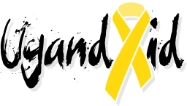Premature baby unit, Jinja Hospital
/Dr Jan writes on her experience today:
"I have just returned from a visit to give the suitcase of baby clothes to the ' in charge' at the premature baby unit in Jinja Hospital.
Let me paint a picture for you.
We drove through the hospital gates, up through the long, dusty drive and we parked outside the wire fence encompassing the maternity unit. The 'care givers' were sheltering from the sun making best use of the meager shade provided by the trees. They sat on the dusty earth, chatting away, somehow a community always seems to grow as relatives wait for news of their loved ones.
Each care giver had a plastic bowl, a papyrus mat and soap to help care for the new mothers. At night they are allowed on the maternity ward and they simply unroll the mat and sleep under the bed of the new mother - to be close at hand, bring food and help with basic nursing care.
The ward contained about 20 beds, some with new mattresses, other bedsteads were leaning towards the broken or missing bed wheel, and the mattresses were covered by cracked and torn plastic. Less than a half of the mothers choose to give birth in hospital, they stay at home through lack of knowledge or lack of money. The 'traditional birth attendants' help, but many of their practices are dangerous, and the government is clamping down on them.
We walked on through the postnatal ward into the special baby unit.
An air of sorrow pervaded. A mother stood in the waiting room, cradling a tiny bundle in her arms, the face obscured by a rough, red blanket. I tried to glance over, thinking I would see a frail newborn. Even from a distance I could see the grey translucent skin of the tiny babe. Our eyes met 'I'm so sorry' was all I could say. She nodded, lost in her grief. Relatives rushed around - they put a scarf on her head, sandals on her feet and led her gently down the steps to the outside fresh air.
The 'in charge' explained that her baby had just died and they were taking him home, to bury him on their land. They needed to disguise that the baby was dead; as they could only afford to go home on a public bus- it was too expensive to provide the fare for a car ride.
There are only 10 cots in the ward, including one incubator. No drips, no ventilators - only the strong survive. The babies can weigh as little as 900gm, and a 750gm twin also died today. Several mums sat with their tiny bundles on their laps, some supported by an older woman, probably the Jaja (Gran) others looked frightened and alone. The in-charge finished some paper work for the dead baby and she came out to meet us. She was delighted by the gift of clothes and tiny hats from the ladies of the 'Knit & Natter' group of Altrincham hub had spent most of the year making these tiny clothes, they had been transported to Jinja by Ugandaid and now they were to be put to good use.
"Last week" she explained, "we had one mother who had nothing to cover her baby. I eventually found an old skirt, and a T-shirt to help wrap the baby. We have nothing else to help these women. Thank you, thank you, thank you."
So little to work with, so little to give the mothers - but her eyes were gentle and kind, and her smile lit up the bleak waiting room.
I reflected on the work I have been doing with Gospel Cross during the last two weeks, with Helen, Geoff and Eddie. The emphases of the course for the village health workers at Gospel Cross International has been on how to care for the pregnant ladies and help prevent the trauma of the premature birth.
On the wall of the premature baby unit, right behind me was a small poster encouraging 'kangaroo' care. That is nursing the premature babe on the mother's chest so giving skin to skin contact whenever possible. This keeps them warm and they are fed at least every 2 hours. We have been teaching that very technique this morning, and it felt so good to be 'on message'. We have also been learning about good nutrition, the need for rest and preparation for birth . The 23 health workers have learnt so quickly and Sam, Betty, Aggrey ,Harriet and Mary have developed such good training skills too.
We drove back in silence to continue the Gospel Cross course.
"Betty, how do you stop becoming discouraged when the need is so great?" I asked.
Betty smiled gently, she looked across to Dr Sam " We all try and do our little bit, we don't give up, we must keep trying to help and God keeps us strong."
I think she noticed the tears in my eyes, but she was wise enough to say nothing."


